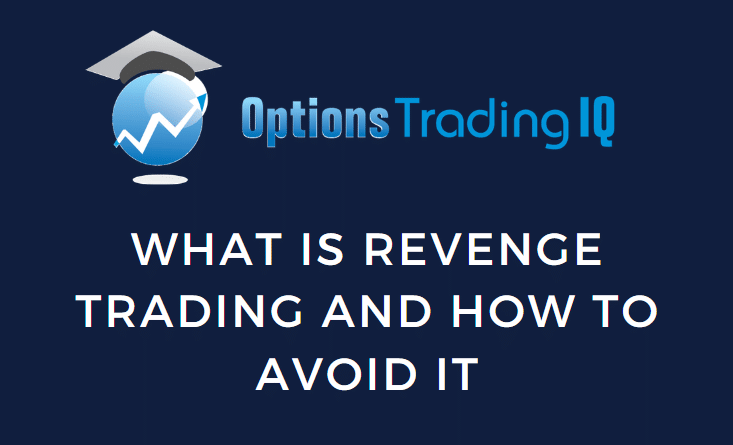

Contents
Imagine that another driver cuts you off on the highway, causing you to brake. You got so angry that you sped up in front of him and cut him off too.
This is “road rage.” Is that a sensible thing to do?
Imagine Mr. Market made a quick price move causing you to lose money.
You got so angry that you fired off several more trades to try to get that money back.
This is “revenge trading.” Is that a sensible thing to do?
It is not a sensible thing to do in trading either.
Plan your trade and trade your plan.
I didn’t come up with this saying.
It is a saying that has been in the trading world for a long time.
While it might be easier to say than to do, the more you see this saying, the more it will become part of your mental thinking.
Assuming that you believe in this saying – which I certainly do – you should have a plan that tells you when and how you would enter a trade.
If you stick to that plan, you will not end up in revenge trading, putting on haphazard trades.
Revenge trading is when you let emotions take over.
You are so mad at that market on a trade that you are fervently putting on new trades to get your money back.
This is a bad idea because now you are forgetting your entry criteria, which indicates that you have an edge.
Now you are putting on trades without edge and statistical probabilities.
Those trades might end as losers, and then you get more mad, and a vicious cycle ensues.
Before placing a trade, write up a trade plan.
I have seen some traders actually put the words “Do not revenge trade” in their trade plans.
That will be a good reminder.
Take, for example, the trade plan of Tom King, an option trader with 30 years of trading experience.
If you study Tom King’s trading style, he is very mechanical and likes simple, consistent, and repeatable strategies without a lot of discretionary decision-making.
He says that he does not get excited when he wins, and he does not get upset when he loses.
He trades quite robotically.
His trade rule number 6 says this:
“NEVER revenge trade or try to show the market that it is wrong! Accept the fact that the market is always right.”
The words “NEVER revenge trade” were colored in red (well, pink).
The market does not care about you or your emotions.
It doesn’t even know you exist.
The market is the market, and it will do what it will do.
Getting upset at the market is like getting upset at the weather for the rain.
The market, as is the weather, is not within our control.
There is a serenity prayer saying that goes something like “accept the things I cannot change, the courage to change the things I can, and the wisdom to know the difference.”
So let me repeat: the market is not within our control.
Paper Trade Every New Strategy
If you are new to trading a strategy, you need to backtest, and paper trade it so that you know how it behaves.
How often does it lose? And by how much?
If a strategy has been seen in backtests to take a 50% loss about five times for every 100 trades, then the trader needs to be prepared for that loss in live trading.
If the trader loses 50% of their trade’s capital, they should not feel bad about it because they know it is part of the strategy.
They should not feel the urge to take revenge trades.
The trader needs to be at that psychological level before going live with that strategy.
This is why the problem of revenge trading often afflicts newer traders rather than seasoned veterans.
Seasoned traders know and have backtested their strategies before going live. They know that loss will come.
When it happens, it is just a normal day at the office trading.
Finding A Strategy That Fits
A trader needs to find a strategy that fits them.
If they cannot sleep at night, then either the strategy is not right for them, or their position size is too large.
Successful trading actually has very few emotions involved.
It is very mechanical (sometimes even tedious and boring).
If a trader is not at that point, they should paper trade and backtest a strategy until they are at that point – when they no longer get upset at a loss that a strategy normally can have.
We hope you enjoyed this article on revenge trading.
If you have any questions, please send an email or leave a comment below.
Trade safe!
Disclaimer: The information above is for educational purposes only and should not be treated as investment advice. The strategy presented would not be suitable for investors who are not familiar with exchange traded options. Any readers interested in this strategy should do their own research and seek advice from a licensed financial adviser.










